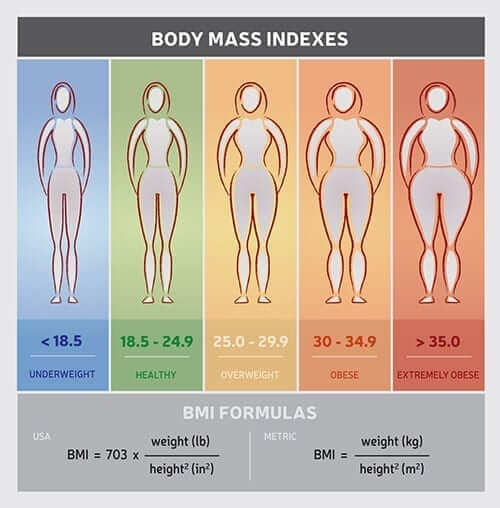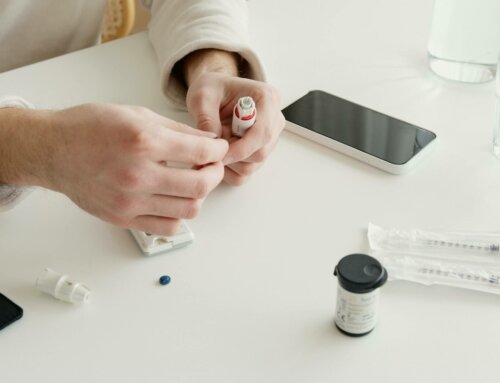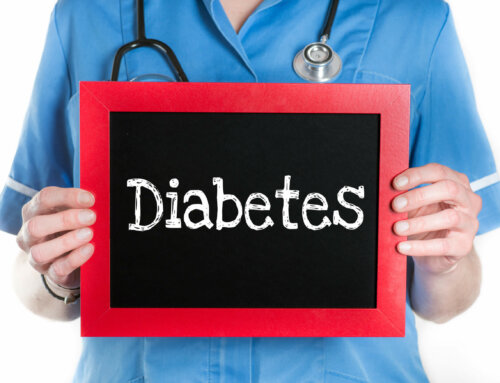Cancer is the 2nd leading cause of death in the United States and around the world. In 2018, over 600,000 people died of cancer in the US. “Women with diabetes are 27% more likely to develop cancer than healthy women and men with diabetes are 19% more likely to develop cancer than healthy men”. Over 47 studies conducted worldwide confirm that “having diabetes” raises a person’s risk of developing cancer. People with type 2 diabetes are twice as likely to develop liver or pancreatic cancer, and the death rate from pancreatic cancer continues to rise. Up to 18% of people with pancreatic cancer later develop diabetes.
Other common cancers connected to type 2 diabetes include: post-menopausal breast cancer, bladder cancer, endometrial cancer, and non-Hodgkin’s lymphoma. More and more research points to the fact that this is not random or a coincidence as both are disruptions of the body’s normal metabolism. DNA from our body gets fixed less often when blood sugars are elevated or continuously stay high. Also, if you have cancer, you may have an increased risk of developing diabetes in the future.
Cancer survivors are most at risk of developing type 2 diabetes within the first 2 years after their diagnosis. This can be attributed to taking certain chemotherapy drugs or immunotherapies. Chronic stress of having cancer can raise cortisol levels and ultimately your blood sugars as well eventually causing diabetes. Weight gain from taking steroids during chemotherapy treatment also plays a part in a higher diabetes diagnosis in the future.
Diabetes and an Increased Risk of Cancer
A recent study published in the Journal of Diabetes Care revealed a connection between diabetes and an increased risk of developing cancer. The cancer and diabetes connection seem to revolve around “hyperinsulinemia”, or more circulating insulin in your body. Too much circulating insulin can stimulate cell growth and possibly lead to cancer. Since your body has difficulty using this insulin, it continues to push out more. We develop insulin resistance or “the lack of the body’s ability to use its own insulin” and chronic systemic inflammation occurs.
High body fat, a sedentary lifestyle, a poor diet high in processed foods plus older age may also play a part in this connection. It is important to ask your doctor about getting screened for cancer so it can be treated in its early stages. It is also essential to maintain proper blood sugars when diagnosed with diabetes to reduce cancer risk.
Diabetes Lifestyle Habits Could Reduce Risk of Cancer
People with diabetes are at an increased risk of developing complications such as stroke, eye problems, nerve damage and heart disease. Strategies traditionally used to reduce the risk of other diabetes-related complications may also help people reduce the risk of getting certain types of cancer. This includes staying physically active, maintaining a healthy weight, avoiding processed foods, and quitting unhealthy habits such as smoking or heavy alcohol use.
Blood Sugar Control Matters
Keeping your blood sugar under control can make a huge difference. Although still being studied, there is an indirect link between sugar and cancer. We can’t eliminate all sugar since our cells need glucose for energy. The best suggestion is to completely avoid or reduce added sugars and simple sugars found in flavored yogurts, jams, jellies, fruit drinks, cookies, candy, cakes, and sodas. Have plenty of glucose test strips on hand so you can check your blood sugar level regularly. Reduce insulin resistance by participating in daily exercise and lose weight to lower your cancer risk.
Certain Diabetes Medications May Help or Hurt
Certain diabetes medications can be helpful in reducing the risk of developing cancer. Research relating to metformin indicates it may lower the risk of getting cancer. This is being tested in present clinical trials. Many people who are prescribed metformin stop taking it due to severe GI upset side effects like gas, bloating and diarrhea. There are easy ways to make taking metformin much more tolerable. Ask your physician to start with a low dose and then increase the dose gradually. Always take metformin after eating a meal and if you are still having a problem, ask for the extended release version.
Diabetes patients taking insulin may be at an increased risk for developing cancer. Currently, 4 studies have been published in Diabetologia stating, “the possibility that insulin could cause existing cells to grow and rapidly divide may increase the risk of cancer”. This is still not definitive, and more studies must be done. You should not skip your insulin based on this limited information. Always discuss medication choices with your doctor. Never stop taking your medication without discussing it first.
Common Risk Factors for Diabetes and Cancer

Fat around the internal organs secrete chemicals sending signals that makes cells “more aggressive”, initiating tumor growth and/or more insulin resistance, which leads to diabetes. Abdominal fat is especially linked to diabetes and colon cancer. Your physician should be measuring your waist circumference at least yearly. Women should have a waist size under 35 inches and men should have a weight size of under 40 inches. Losing just 5-10% of your total body weight can improve your health and reduce these risks.
Eating Healthy
Eating healthy foods can help you maintain better blood sugar control and reduce cancer risk. Eat well-balanced meals. Include whole foods such as grass-fed meats, whole grains, fresh fruits in limited portions and above ground vegetables in your daily diet. Reduce total portion sizes and do not skip meals. In small portions, add good fats such as olive oil, nuts, and seeds. Focus on carotenoids which are foods high in beta-carotene including carrots, pumpkin, sweet potatoes, tomatoes, and watermelon.
Vitamin C foods such as oranges, lemons, limes, and grapefruit can build the immune system. Other wonderful food choices to lower cancer risks include onions, garlic and cruciferous vegetables like cabbage, cauliflower, brussel sprouts and broccoli. Legumes including peas, beans and peanuts contain polyphenols, which may deter cancer development. Dietary fiber found in whole grains like oatmeal and brown rice have cancer protective nutrients. Limit your intake of processed foods, red meat, and alcohol.
Drink water as your main beverage and include green unsweetened tea and coffee for other possible benefits to reduce cancer risk. The American Cancer Association recommends, “be as lean as you can without being underweight”. This advice will of course, help your blood sugars and diabetes, as well.
Fit Cancer Screenings into Your Diabetes Schedule
People with diabetes are often busy with self-management and ongoing medical visits to their health care team. This may include a dentist, endocrinologist, nephrologist, podiatrist, ophthalmologist, and cardiologist. As a result, studies show people with diabetes might be less likely to schedule essential cancer screenings, such as a mammogram to screen for breast cancer, low dose CT-scan if you are a smoker for lung cancer, or a colonoscopy for colon cancer. It is important to maintain a schedule that includes all of your medical exams and screenings. Early detection of cancer can improve your chances of successfully fighting it.
Quality and Duration of Life
A recent study revealed people with diabetes have an increased risk of premature death due to developing cardiovascular complications such as heart attack and stroke. They also have an increased risk of death from kidney disease, nerve ending disease and colorectal cancer. Developing good lifestyle habits can help you avoid diabetes-related complications as well as heart disease and cancer. This improves the quality of life for people with diabetes and may help them live longer.
Daily exercise or physical activity lowers insulin resistance, can reduce the risk of obesity, prevents high levels of insulin, reduces inflammation, improves immune function, lowers total estrogen in your body and decreases your cancer risk. According to The National Cancer Institute (NIH), “there is a lower risk of colorectal, bladder, breast, esophageal, and stomach cancer when you exercise consistently”. Get all your blood work done on time. Do not miss appointments.
Ways to Reduce Your Cancer and Diabetes Risks
According to Cancer.org, daily habits that increase the risk of diabetes may also affect your risk for cancer. Inactivity and poor diet are two major factors that may boost a person’s risk of cancer and diabetes-related complications. The World Cancer Research Fund estimates, “around 20 percent of the cancers diagnosed in the United States are related to poor nutrition, excess body fat, excessive consumption of alcohol, and lack of exercise”. Work with a team of health care professionals to help you get your habits balanced including a registered dietitian, diabetes nurse educator, and physical trainer. Check your body mass index (BMI) to determine if you are a healthy weight. If it is a challenge to quit smoking, consider smoking cessation therapy or alternative methods such as acupuncture and hypnosis. If you consume too much alcohol, a counselor or Alcoholics Anonymous (AA) may help you quit.
Can Diabetes Complicate Cancer Treatment?
If you do develop cancer with diabetes it may become a difficult balancing act. Chemotherapy treatment may make it difficult to control blood sugars. Steroids are often given in conjunction with chemotherapy to reduce nausea and vomiting. Be aware that steroids will raise blood sugars. Vomiting from chemotherapy may cause dehydration which can elevate your glucose numbers. Cancer treatment can lead to a lack of taste and painful mouth sores. You may want to consume comfort foods which are high in fat and carbohydrates making it difficult for you to control blood sugars and your weight. Both diabetes and cancer can weaken your immune system. This makes it harder to fight off any infections. Chemotherapy and immunotherapies can wear down your resistance leading to more health problems.
Plan to Combat Diabetes and Cancer
Healthy foods can help people combat diabetes and cancer. Be aware of calorie content in the foods you choose. Read food labels and do not be misled by labels such as “non-fat” or “low-fat”. Avoid foods with added sugars, empty calories and salt. Limit or eliminate your intake of processed meats such as hot dogs, corn beef, salami, sausage, deli meats, and bacon. Try to bake, broil, boil, steam, sauté or grill foods – rather than frying them. Select whole grain bread, pasta, and rice over white ones made with refined grains that lack fiber.
Limit your alcohol intake to 1 drink or less for women, and 2 drinks or less for men daily. Do not start drinking if you never did. Drinking alcohol raises your risk of many cancers including stomach, mouth, throat, and tongue. Avoid the empty calories in fruit juices, smoothies, sports drinks, fruit punch, lemonade, coconut water and regular soda. Choose plain or carbonated, calorie free, flavored water to stay hydrated instead.
Formulate a plan if you do develop cancer with diabetes
Unfortunately, you may end up developing some form of cancer after your diabetes diagnosis. This can create a challenge. The most important thing you can do is construct a plan. Make sure to educate yourself as well as others around you, such as family members. Continue to manage blood sugars as well as your blood pressure. Meet with a dietitian that can educate you on making smarter choices of foods with adequate nutrients.
Food Preparation
Wash all fruits and vegetables in a prepared vegetable wash or with warm, soapy water. Rinse carefully. Even fruits with peels and skins should be thoroughly washed to avoid eating any pesticides. High quality foods give you more energy and strength than junk foods. Talk to your physician if you lose your appetite or can’t keep food down. Stay adequately hydrated which will help keep your body’s mineral content in balance and blood sugars in control.
Healthy Lifestyle
Move your body daily to maintain physical strength and elevate your emotional mood. Certain cancers may not return when exercise becomes a routine part of your life. Walking, gardening, taking an exercise class, dancing, household chores, swimming or playing a sport is acceptable. Listen to your body and do not overdo it. Take a rest when you need one. Talk things out since you will be overwhelmed by both diseases. Find a professional counselor, a religious leader, support group or friend and verbalize your feelings. Learn about all resources available to you.
Stress Relief
Zap stress. Stress can make both conditions worse. Less stress means a stronger body to better handle cancer and diabetes. Keep up with self-grooming. If you have the energy, shower or bathe daily and put on fresh clothes. Deal with money issues, because these illnesses can certainly lead to unexpected high bills. Talk with a financial counselor, social worker, or the billing departments if necessary. Be in close touch with your insurance company. See if you can consult a nurse navigator to direct you through the entire process.
Cleanliness
Avoid germs as much as possible. Wash your hands, use sanitizer, wear a mask and distance socially. You are compromised and do not want to take any chances. Do not go for manicures or pedicures while under treatment because your chance of fungus or an infection can increase. Visit a podiatrist for proper nail care. Do not walk barefoot. Avoid buffets. Cook poultry to an internal temperature of 165°F and meat to 145°F for a reduced risk of developing a bacterial infection. Do not eat unpasteurized cheese, milk or yogurt which could cause food poisoning.
Rest
Sleep as best as you can. Try acupuncture, acupressure or massage. Do not clean litter boxes or bird cages, if possible as they are teeming with germs. If you must, wear rubber gloves and a face mask and wash your hands immediately after. Keep skin moist by using a mild soap, followed by lotion, after washing. Keep skin folds and sweaty places on your body clean and dry with cornstarch powder to avoid fungal growth.
Remember
Make sure to not forget you still have diabetes. Try to control blood sugars to the best of your ability with the physician’s help. Both diseases, if well treated, may become chronic conditions you can live a long life with.
Ensure Your Health Team Works Together
If you do develop cancer, it is essential to ensure everyone in your health care team works together. Many times, they will meet as a team to discuss your overall treatment. Discuss the options with your physicians to develop a plan that works for everyone. Ask questions and be your own advocate. Take a family member or friend with you to each visit. Carry a pad and paper or tablet to jot down questions, advice, and your immediate thoughts. Continue to read and inquire about the latest research. Be aware that you may be eligible for a new drug trial. Find the best medical center and specialty department you can for treatment.
In Summary
Learning more about the diabetes and cancer connection can help you combat both. A healthy lifestyle, keeping regular medical appointments, and ongoing screenings make a big difference. Be proactive about your overall health so problems can be diagnosed and treated right away.








Leave A Comment